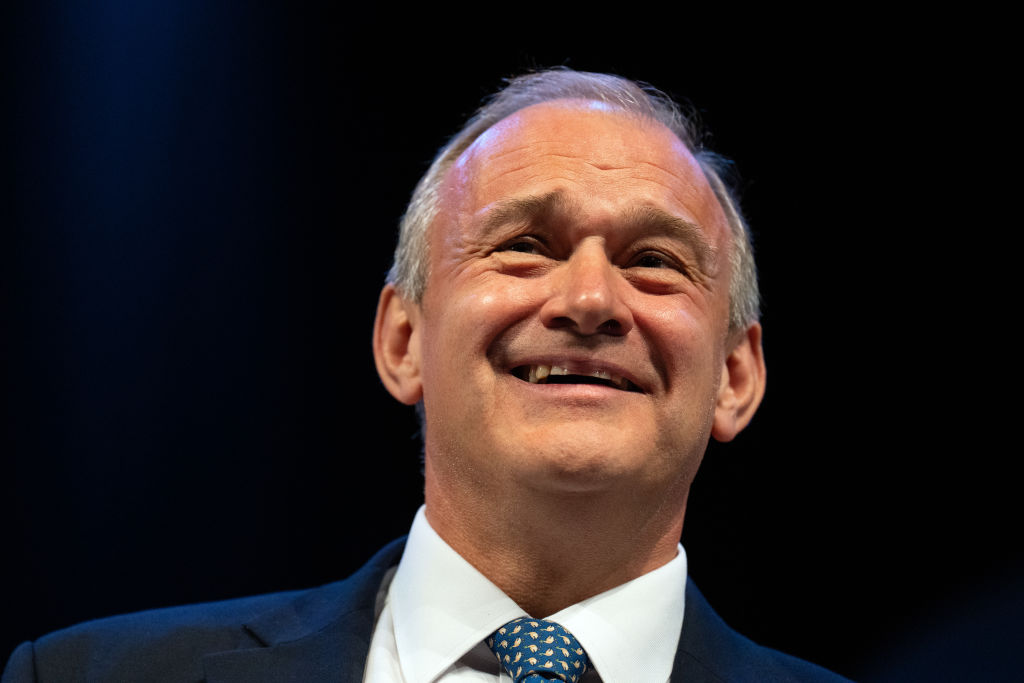Having won 72 seats at the general election, political pundits have been asking what the Lib Dems are going to do with their vastly increased presence in the House of Commons. The answer so far: not much. It’s remarkable how quiet the party has been, both in parliament and in the media. However, the Budget has seen them spread their wings a little – and what they have revealed is interesting.
They have attacked Labour from the right: decrying the rise in employers NI; attacking the government’s policy on inheritance tax; criticising VAT on private school fees. So, does this mean that the party is going to position itself to right of Labour on economic issues, and to the left of the Tories and Reform on culture? Sort of. But it’s not as simple as that.
There is a huge, gaping hole in British politics
The Lib Dems have created what should be described by Tory strategists as the ‘yellow wall’ – an area that stretches from the south coast up through the Home Counties and then out to the West Country. They have done this mostly by being a sort of ‘none of the above’ party – or more to the point, a ‘not the Tories’ option for ex-Conservative and centre-left voters alike in areas where the Labour party is not a large presence. Yet holding these seats on that flimsy a premise is a big risk, so it’s not surprising that the Lib Dems will want to strengthen their message a bit between now and the next general election. The problem though, is if they are going to stand for something solid, what is it that they should stand for? It will be difficult for them to get this right and keep their current electoral coalition together.
The Lib Dems are very much at the mercy of the Conservative party, as things stand. If the Tories thought about the voters in the yellow wall even a little – if they had anything to offer them – then I think most of these constituencies that voted Lib Dem in 2024 would turn blue again. Having said that, the Tories have shown absolutely no interest whatsoever in appealing to these voters since the general election. They are obsessed with the idea of hoovering up Reform votes and convinced this will result in a victory next time – even though the psephology tells them something completely different.
This is great for Lib Dem strategists, but also creates a conundrum for them. Do they stay where they are, not making any sudden moves, hoping the continuing implosion of the Conservative party results in them holding most if not all those 72 seats? Or do they have to – gulp – decide to have a purpose in politics and stand for something real?
Broadly speaking, if the Lib Dems want to go the safest route, tacking right on the economy and staying left on culture issues is broadly correct. Except, even that is complicated. How far to the right should the Lib Dems go on the economy? Being against VAT on private school fees and inheritance tax rises is relatively easy going, but would they dare to have truly right-of-centre policies on the economy? I find it difficult to see this happening, given both the party’s history and its activist base. Taking properly right-wing positions on tax and spend, ones that would involve noticeable cuts to public spending, would be internally painful for the party.
Also, even finding the correct positioning on culture issues will be tricky for the Lib Dems, and I don’t think they are anywhere near finding the ideal space for them on this stuff yet. For instance, the party has been vocally pro-trans for years now, yet I don’t think that’s where most of their voters are. A lot of them will be middle-aged, with kids, and fearful of what is influencing their children, both online and in schools. In other words, a lot of their voters will be quietly but decidedly anti-woke. So, do the Lib Dems embrace a new, more measured (and dare I say it, centrist) approach to culture issues, or do they stay where they are, appeasing an activist base that is very, very, very left-wing on these topics? At some point in this parliament, I think this question is going to matter.
In summary, there is a huge, gaping hole in British politics for a centre-right liberal party. The Lib Dems inhabited this space for the electorate last time mostly by accident. Keeping the same voters long-term will involve them making big decisions about what they want to stand for. I believe that they will mostly avoid this tricky subject, trying to stay centre-rightish for those voters who want them to be that, while being able to present as centre-left for people who would like them to be that instead. Their ability to play chameleon and hang onto most of their seats come the next election will almost certainly come down to how the Tories approach these seats. So far, the wind seems be favourable to the Liberal Democrats.








Comments